
WUN consortium launches ‘Tertiary Education in a Warming World’ Report
Higher education institutes have a critical role to play in driving the scientific, political, technological, and cultural change needed to avoid the worst-case climate change scenarios, and in advancing the
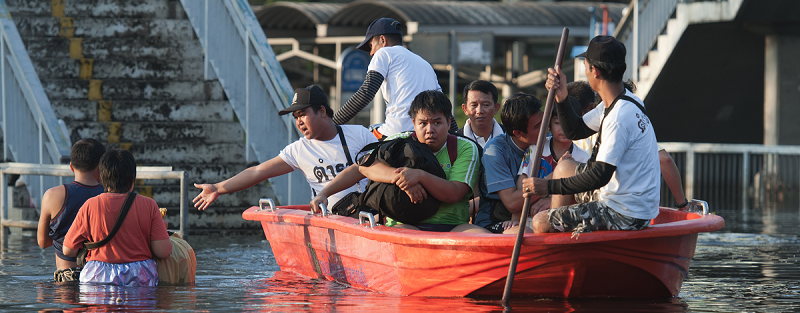
Where do climate migrants go?
As climate change renders populated areas uninhabitable, what does justice look like for those who must relocate? A forthcoming collection of papers in the journal Regional Environmental Change will address

Disaster risk governance differs for COVID-19 vs. other crises
A new study examines how government response to disasters differs when the risks stem from a communicable disease. The study, which will appear in the journal Frontiers in Public Health,
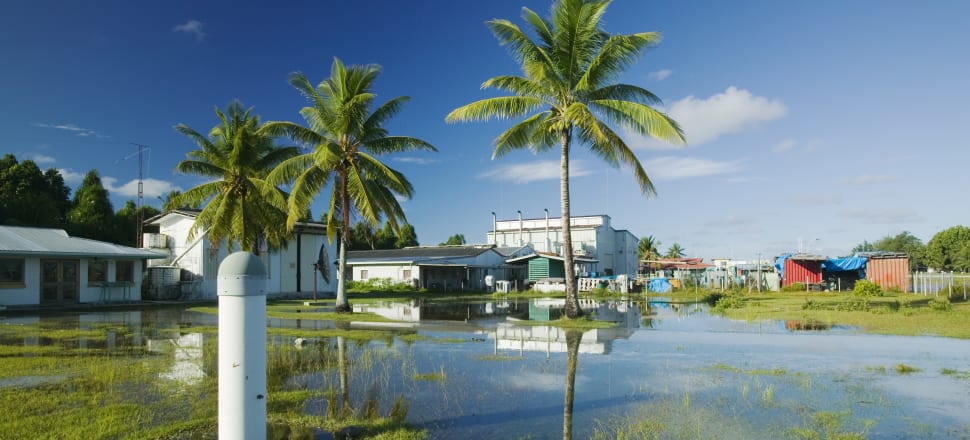
No climate justice without migration justice
Small Pacific Island nations like Tuvalu have been feeling severe impacts of climate change and will eventually become uninhabitable – despite all small island developing countries in the Pacific combined
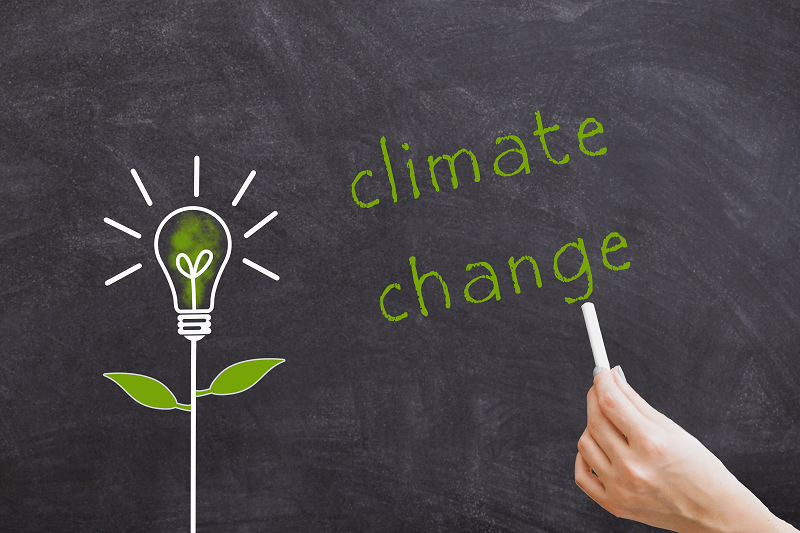
Toolkit aims to prep educators to address climate crisis
SUMMARY A multimedia set of resources called “Education in a Warming World” aims to help educators effectively address the climate crisis in undergraduate courses. The project includes short videos, a

Modelling marine microplastics: international workshop explores new challenges
Did you know that teabags are made of plastic? Do you know where that plastic ends up? With WUN funding, a team of researchers led by Professor Bruce Sutherland (University of Alberta) are learning how to predict the movements of microplastics after their entry into water systems. Click through to read more about their recent workshop and their goal to help policy-makers take action.

Mobilising around mobility: unique WUN collaboration to study wellbeing and sustainable transport
How do individuals weigh up the options of different modes of transport? Do they value speed, accessibility, cleanliness, health, or cost when choosing how to get around? What choices are available and how might this change? Funded by a 2020 Research Development Fund grant, this new WUN Interdisciplinary Research Group brings the power of five key institutes to the challenges—and benefits—of promoting greater use of sustainable forms of mobility, with their associated outcomes for health and wellbeing. Click through for the full story.
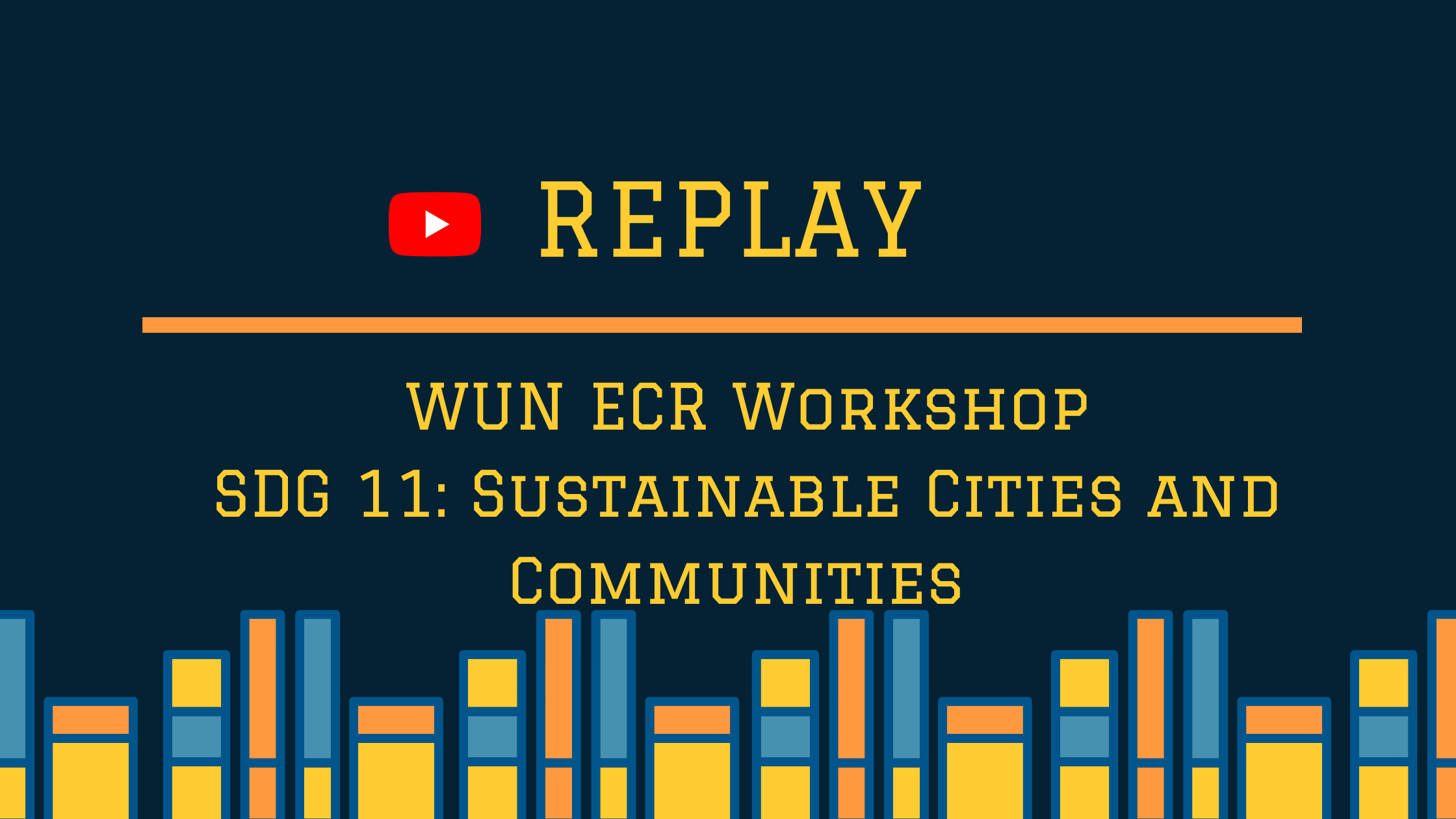
Replay: WUN ECR Networking Workshop on Sustainable Cities and Communities
The Worldwide Universities Network recently held the third in its special program series of networking workshops for early career researchers (ECR) on the theme of Developing the next generation of research

WUN special program for early career researchers off to successful start with focus on SDGs 4 and 13
WUN recently held the first set networking workshops as part of its special program for early career researcher (ECR) entitled “Developing the next generation of research leaders for sustainable development.” The first two, of which there will be 17 in total, focused on SDG 13: Climate Action, and SDG 4: Quality Education, respectively. Click through for a summary and videos of the keynote talks.

CUHK Study Suggests Hot Nights Pose Greater Threat to Public Health
A study done by the Institute of Future Cities at CUHK reveals that hot nights pose greater threat to public health than hot days and better urban planning and building design are needed to mitigate the impact.
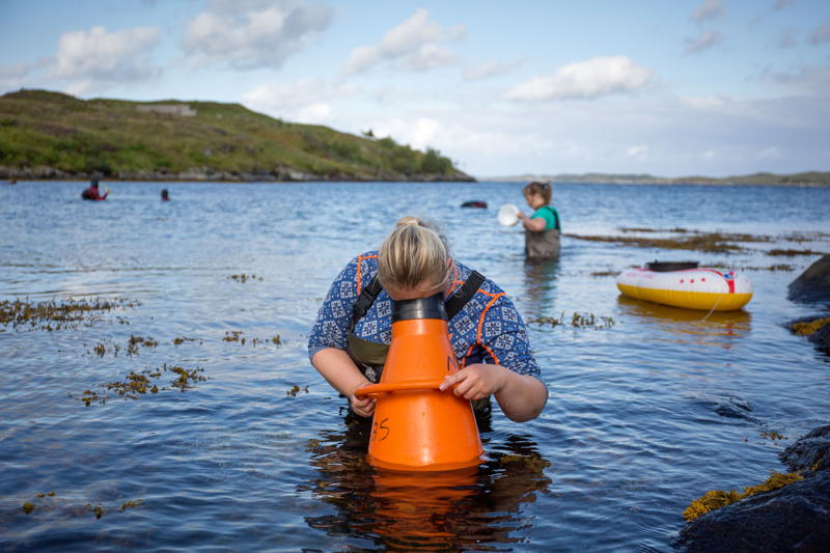
Sustainable Oceans Series: Highlighting Sustainable Development Goal 14 – Life Below Water
(22 June series update)
Following World Oceans Day, WUN is pleased to share a presentation of a series of articles in which United Nations Academic Impact (UNAI) presents ocean science from WUN member the University of Bergen, UNAI’s Hub institution for SDG 14: Life below water in the Sustainable Ocean Series.
We will be sharing four features from this project, a new article to be published each Monday, and also highlight what WUN research teams are doing to address the future of our oceans. Click through for more.
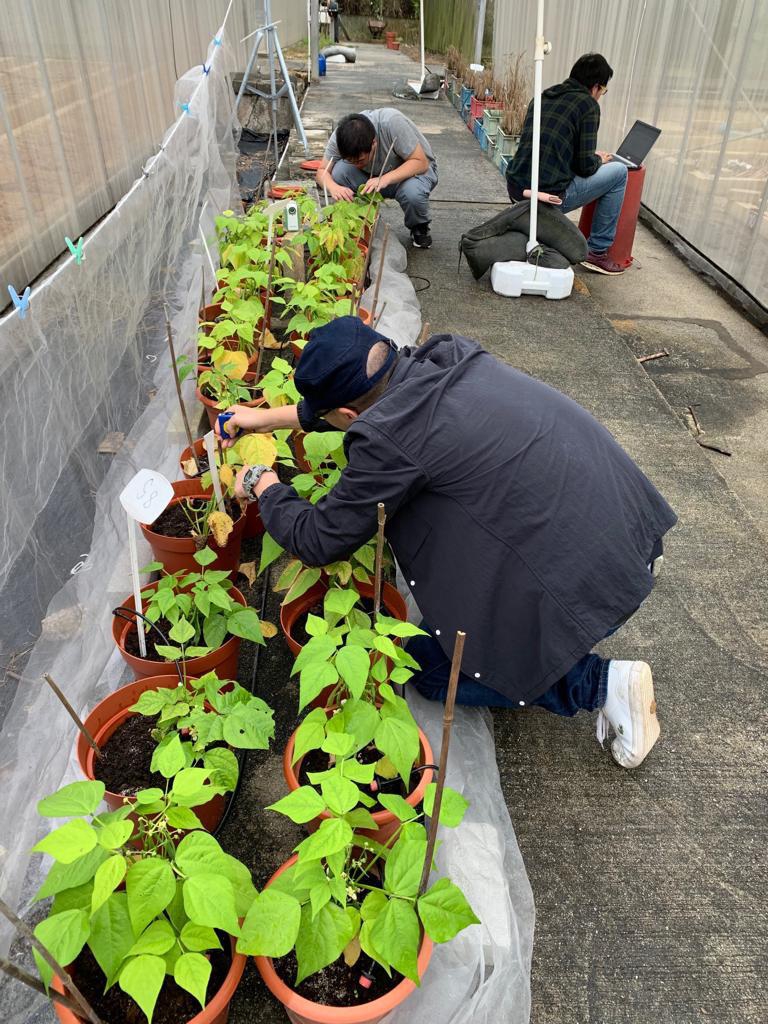
CUHK Proves & Visualises the Harmful Effect of Ozone Damage on Plants
CUHK Proves and Visualises the Harmful Effect of Ozone Damage on PlantsFirst Plant-based Measurement of Ozone in South China Region A research team led by Prof. Amos Tai, Associate Professor of
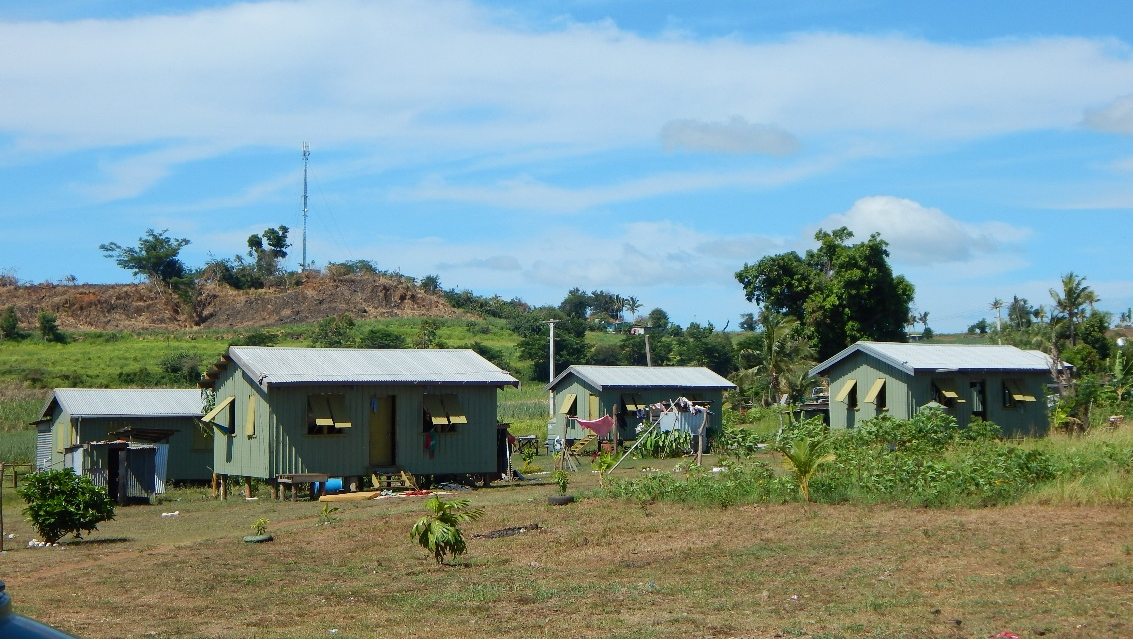
New consortium to bring interdisciplinary insights on climate-induced migration
While disasters and environmental factors have always been important drivers of migration, even more people are expected to move as they face the projected impacts of climate change, including more extreme weather events, changes in water quality and availability, and interactions with conflict.
A recent ruling of the UN Human Rights Committee, which stated that people cannot be sent back to countries where climate change impacts place them in immediate danger, was treated by many commentators as a landmark protection for environmental migrants. As Professor Andreas Neef (University of Auckland) explains in this feature, the reality is more complex. Recipient of a 2020 WUN Research Development Fund award, a WUN member consortium will advance interdisciplinary research into climate-induced migration. It aims to help improve policies through a better understanding of the complex drivers of migration and displacement associated with climatic changes. Click through for the full story.
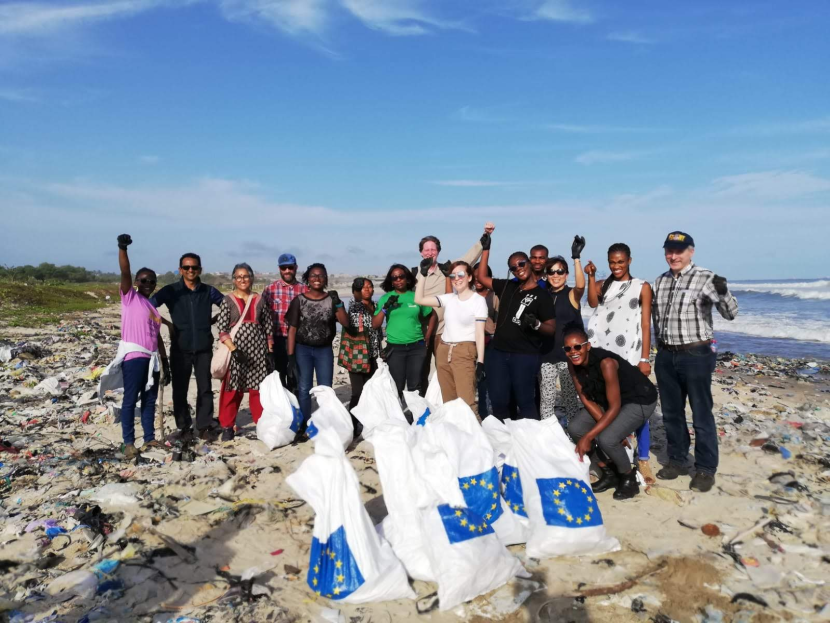
Action research for a cleaner future
Not just talking, but doing: with funding from the WUN Research Development Fund, academics from four WUN universities got together with experts and decision-makers in Accra to combine forces on global waste management. Professor Shyama V. Ramani and PhD researcher Ms Maria Tomai talk here about their recent activities.
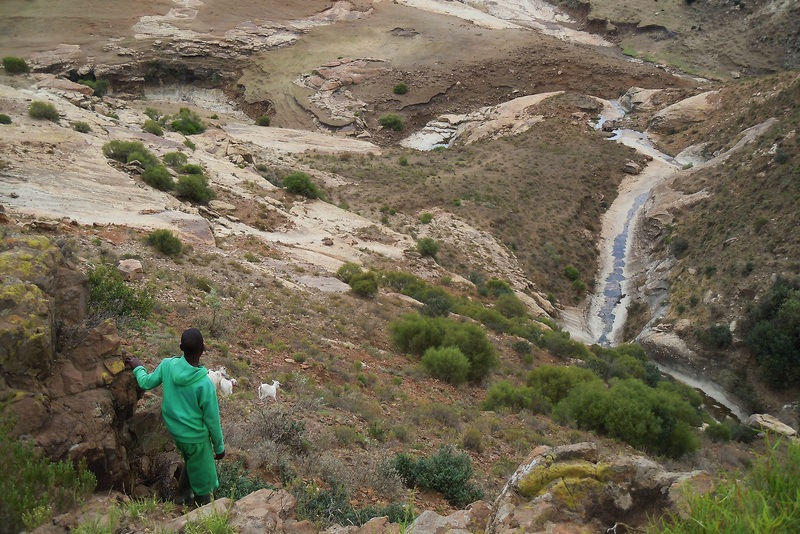
WUN kick-starts African partnership for climate resilience
The WUN Research Development Fund grant will help the ARUA-CD to support research on climate-resilient landscapes, specifically at three study sites in South Africa, Kenya and Ghana.
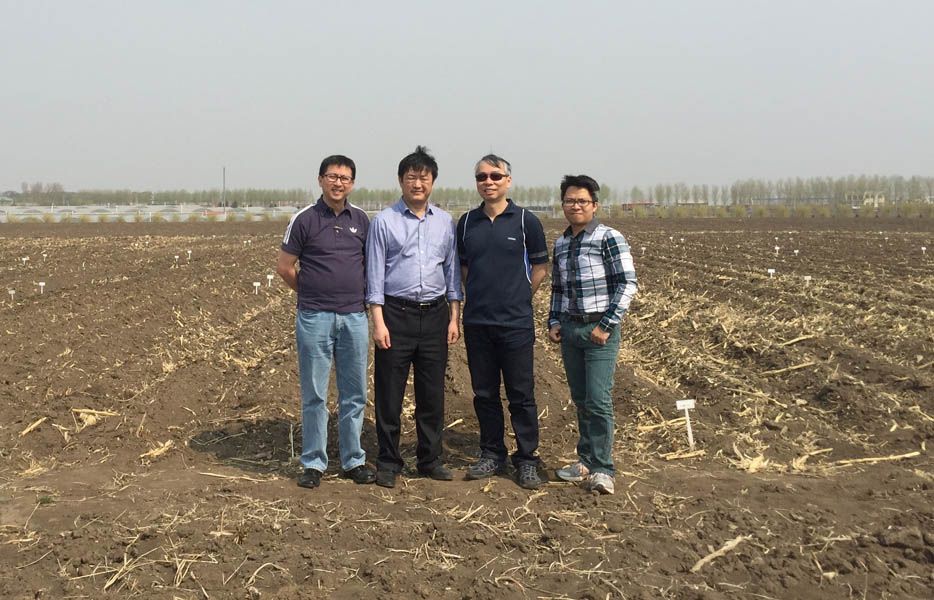
Sustainable Farming Practices as a Means to Maintain Food Supply & Mitigate Air Pollution
Using advanced computer models, CUHK researchers found that intercropping enables higher productivity in crops with less synthetic fertilizers and hence reduces the air pollutants being volatilized from the cropland soil. This sustainable farming practice may help maintain a stable food supply and mitigate the air pollution problem in China.
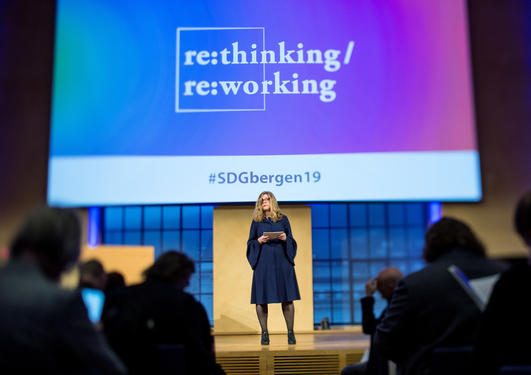
Global Partnerships for Transformational Action on the SDG 2030 Agenda
WUN member Maastricht University (UM) reports on their attendance at the second National SDG Conference Bergen.
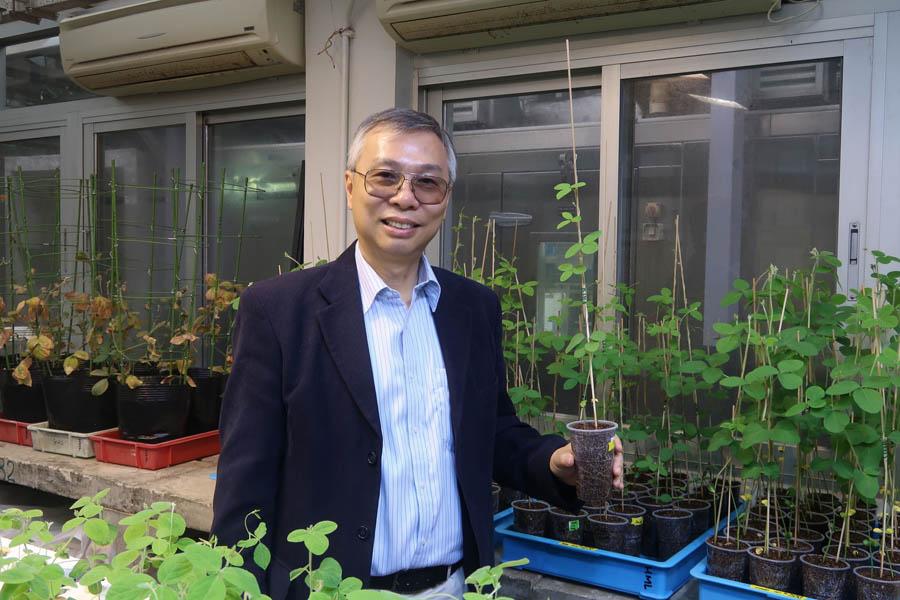
CUHK Professor Announces World’s First Reference-grade Wild Soybean Genome
Prof Hon-ming Lam, CUHK professor and WUN IRG leader, completed the world’s first reference-grade wild soybean genome.

WUN Global Farm Platform Workshop
A novel framework for international comparisons of on-farm sustainability was the main focus of a WUN Global Farm Platform workshop held in Nairobi, November 2018

SDG Conference Bergen 2019 Edition – Registrations Now Open
National conference on the role of Norwegian universities in relation to the Sustainable Development Goals (SDGs).

Sustaining landscapes and livelihoods in the South Pacific
A new platform to identify climate-smart adaptations in Fiji and Tonga will assist communities vulnerable to climate change.

inVIVO Planetary Health announces publication of their 10 key principles for planetary health
The Canmore Declaration is defined as the interdependent vitality of all natural and anthropogenic ecosystems: social, political and otherwise.

Water for sustainable food, renewable energy and biodiverse ecosystems under a changing climate
WUN Responding to Climate Change Global Challenge Workshop

CUHK Launched Joint Research Centre with University of Exeter
CUHK and one of the University of Exeter launched a new HK$20m joint research centre to embark on large, impactful interdisciplinary collaborations to tackle emerging issues related to a changing environment and human health and well being.
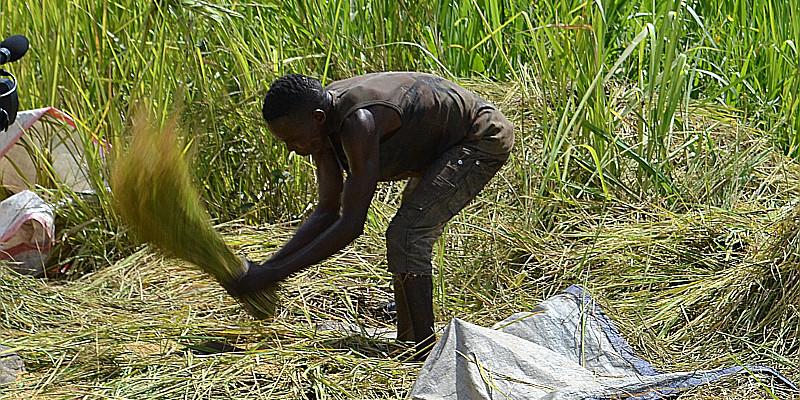
New £9m programme to transform food systems in Africa
GCRF-AFRICAP project has been launched in Pretoria.
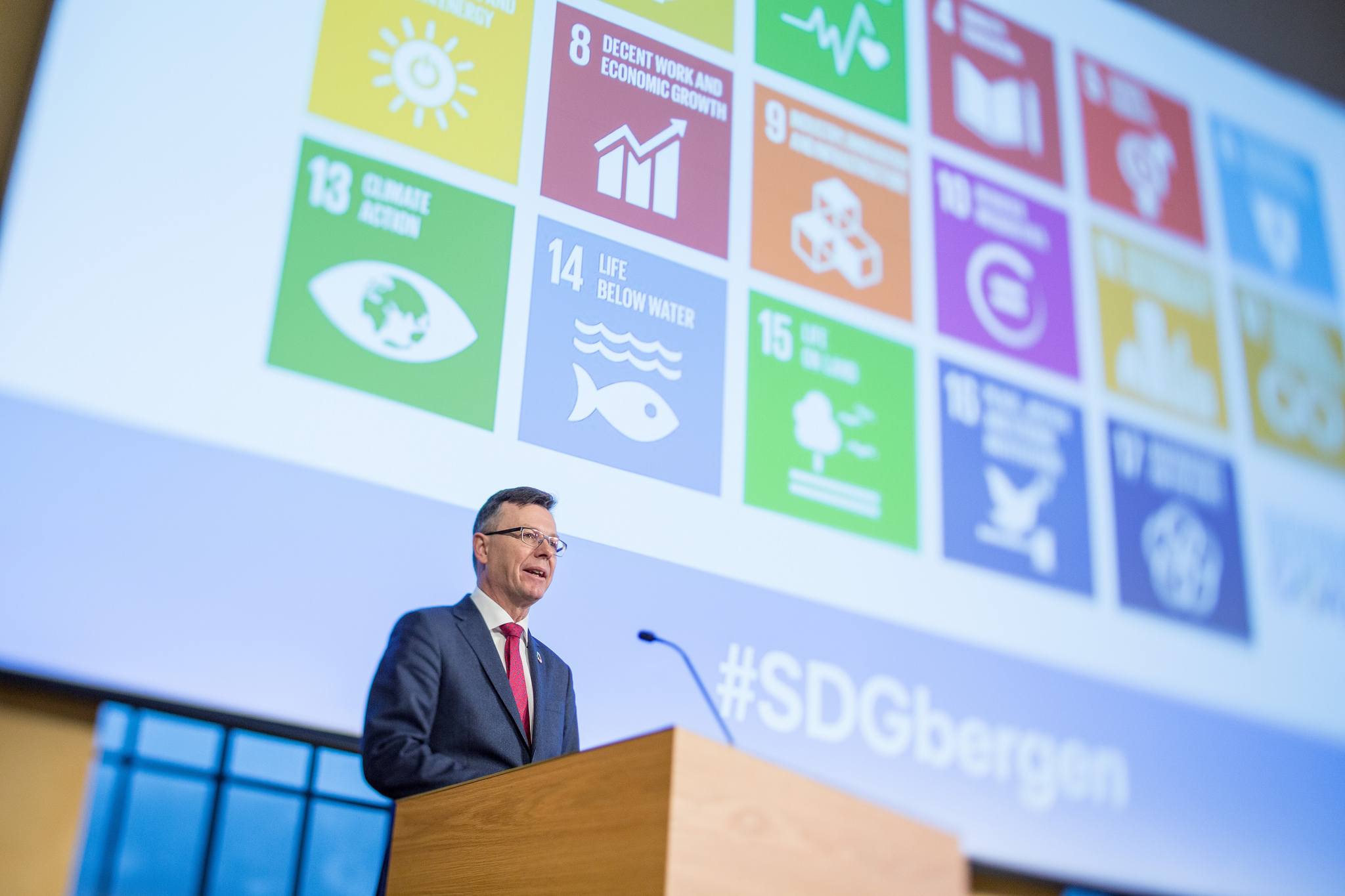
WUN-University of Bergen commits to 2030 carbon-neutral target
WUN member, The University of Bergen (UiB), will be climate-neutral by 2030 thanks to a commitment to sustainability announced at the first SDG Conference Bergen held in February 2018.
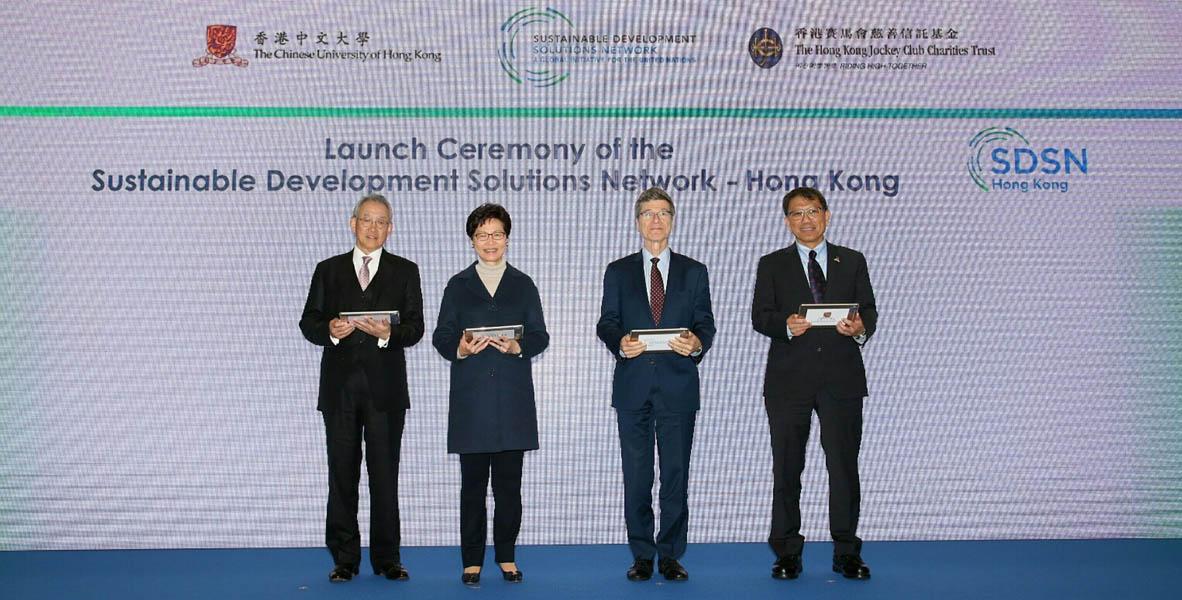
SDSN Hong Kong Launched at CUHK
CUHK and the Hong Kong Jockey Club Charities Trust join hands to co-host the Hong Kong chapter of the UN Sustainable Development Solutions Network.

Impacts of climate change and ozone air pollution on crop production
Major findings WUN Responding to Climate Change research group published in science journal Atmospheric Environment.

Livestock Sustainability and Global Challenges Workshop
Bristol to host major international workshop on livestock and SDGs

CUHK to Host ACU Summer School 2018
CUHK has been selected to play host to the next Association of Commonwealth Universities Summer School on 1-9 July 2018.
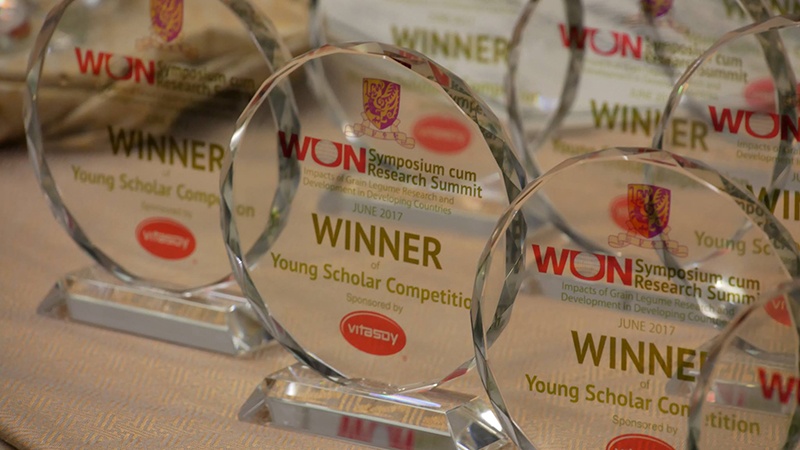
CUHK Legumes Symposium Facilitates Collaboration between Young and Senior Researchers
The WUN Symposium cum Research Summit on Impacts of Grain Legume Research and Development in Developing Countries held at CUHK on 8-17 June 2017 brought together over 100 participants from six continents to exchange knowledge and ideas on the development of legumes research.
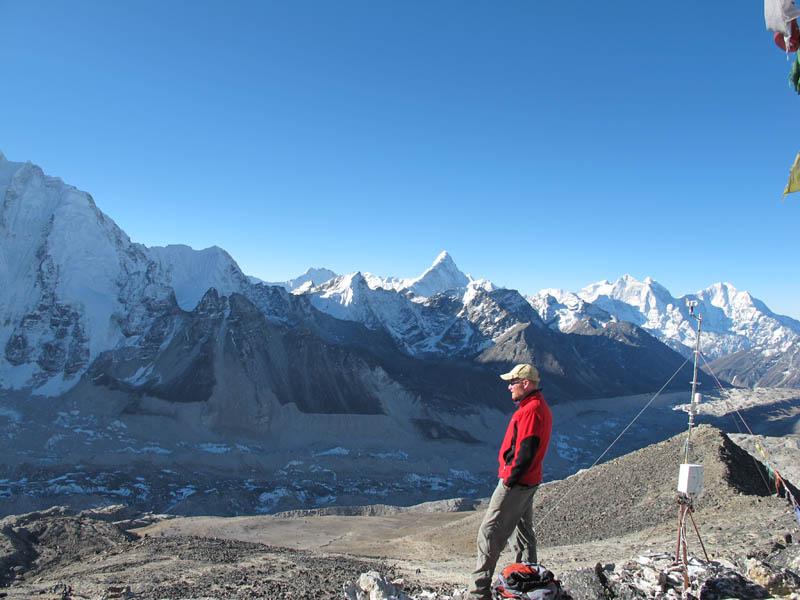
Drilling down into the mysteries of the world’s highest glacier
Climate change scientists are heading to the Himalayas in a bid to become the first to successfully drill through the world’s highest glacier. An international research team will spend up
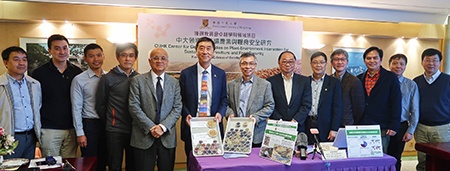
CUHK Launches New AoE Centre on Plant-Environment Interaction
The Chinese University of Hong Kong has been awarded some HK$8m from the Hong Kong University Grants Committee to lead the AoE Centre for Genomic Studies on Plant-Environment Interaction for Sustainable Agriculture and Food Security from 2017 to 2025. The new AoE Centre will develop new plant and agricultural technology with a view to striking a better balance between sustainable agriculture and food security.

CUHK Develops First Local Platform for Urban Big Data Integration & Analysis
The Institute of Future Cities at CUHK has developed the first platform in Hong Kong for integrating and analysing urban big data in an effort to help Hong Kong to become a smart city in the areas of personalized health monitoring, urban planning, air quality, and social care.

COP22 WUN panel explains tie between climate resiliency and natural disasters
“Loss and damage in the Paris Agreement context is about much more than just environmental damage. It is a matter of losing a community’s dignity for many”, said Prof Petra Tschakert during a COP22 side event hosted by the Worldwide University Network.

CUHK Invents Asymmetric Supercapacitors and New Flow Batteries
CUHK engineers have invented the most efficient asymmetric supercapacitors and the flow batteries with the highest volumetric capacity reported to date.

Food security needs social-science input
The Climate- Resilient Open Partnership for Food Security project (CROP-FS) published in Nature magazine.

CUHK Recommends Best Practices and Strategies for Low-carbon Urban Transport System
The Institute of Future Cities at CUHK has conducted a comprehensive research on low-carbon transport practices and policies with the objective of formulating a strategy for Hong Kong’s future low-carbon transport system initiatives.

A Triumvirate from Three Continents: CUHK partners with University of Toronto and Utrecht University
CUHK forms tri-continental partnership with the University of Toronto and Utrecht University for innovative solutions on urban issues

Dinosaur families chose to exit Europe
Researchers have used ‘network theory’ for the first time to visually depict the movement of dinosaurs around the world during the Mesozoic Era – including a curious exodus from Europe. The research, led by the University of Leeds and published in the Journal of Biogeography, also reaffirms previous studies that have found that dinosaurs continued to migrate to all parts of the world after the ‘supercontinent’ Pangaea split into land masses that are separated by oceans.
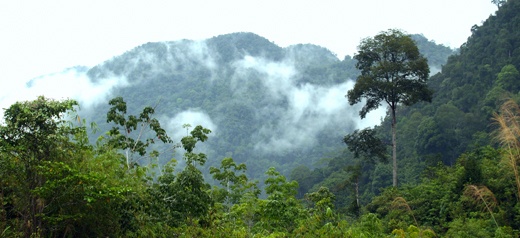
Animals’ role in mitigating climate change varies across forests
Large animals play a key role in mitigating climate change in tropical forests by spreading the seeds of large trees that have a high capacity to store carbon, new research has found. The research, co-led by the University of Leeds and published in the journal Nature Communications, sheds important new light on the role seed dispersal by animals plays in mitigating climate change, and how this role can vary in tropical forests across the world.
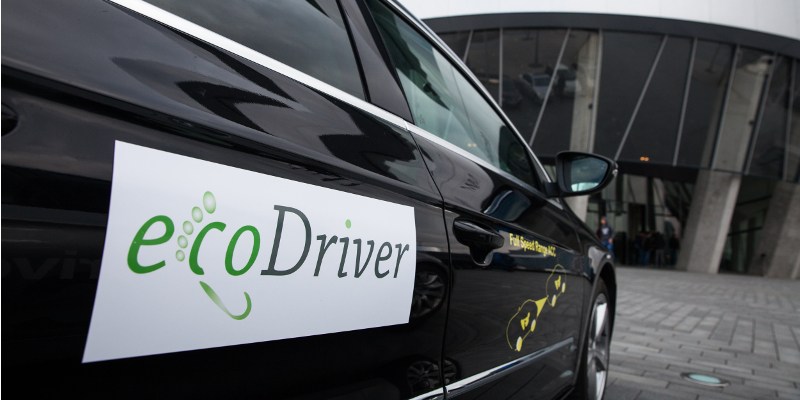
Cutting fuel costs and CO2 emissions
Cars of the future which advise how to drive more safely and economically could bring significant cuts in fuel consumption and emissions. Eco-driving systems offer visual guidance to drivers, usually built in to satellite navigation systems or via smartphone apps. The systems are not yet widely available, but manufacturers are looking at installing them in their next generation of cars.The ecoDriver project, led by the Institute for Transport Studies at Leeds with industry partners including BMW, Daimler, CRF (Fiat-Chrysler) and TomTom Telematics, showed that drivers of cars which had such systems installed saved an average of 4.2% in fuel and CO2 emissions, with an even higher saving of 5.8% on rural roads.
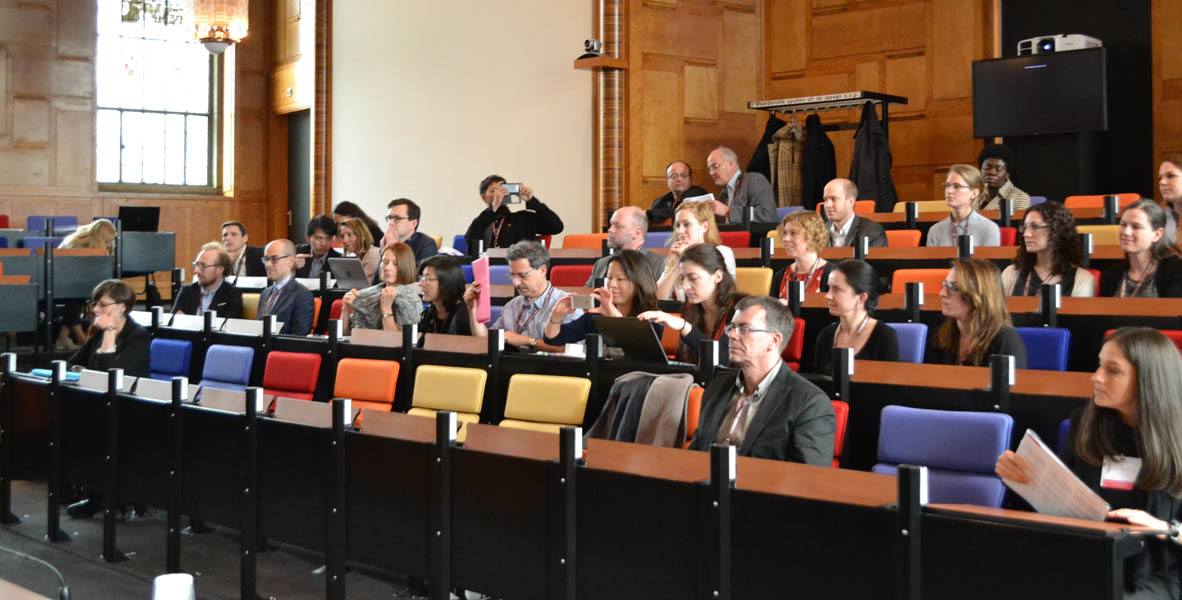
WUN Contributes to Global Policy Agenda in Maastricht
On 2-7 April, close to 400 academics and university leaders from around the world will descend on Maastricht for the WUN Conference & AGM 2016, hosted by Maastricht University.

WUN Global ‘Air Sensors Everywhere’ Campaign Launched
Environmental health science researcher Richard Peltier at the University of Massachusetts Amherst, with others around the world, is launching a series of webinars and events for a Do-It-Yourself, citizen science campaign called “Air Sensors Everywhere.” It aims to bring small air pollution sensors to the developed and developing world “to empower people everywhere to use low-cost pollution sensors to reduce pollution-linked disease.”
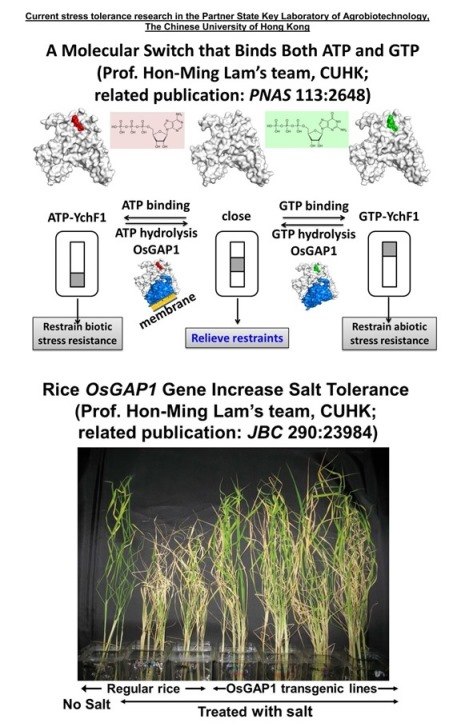
CUHK Uncovers Structure and Functions of the Rice YchF-type G Protein
Prof. Hon-Ming Lam, Director of the Centre for Soybean Research of the Partner State Key Laboratory of Agrobiotechnology at The Chinese University of Hong Kong, and his team have uncovered the structure and functions of the Rice YchF-type G Protein for the first time. The new findings help improve plants’ defense response and stress tolerance, and maintain a higher agricultural productivity under adverse conditions.
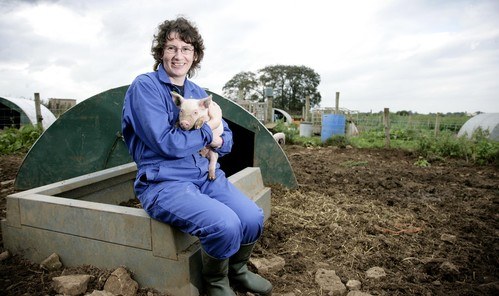
New funding for livestock research centre
A new government and industry-backed £70million livestock innovation centre has been launched, supported by University of Leeds investment. Bringing together the food industry and researchers, the government has awarded £27.7 million to set up Centre of Innovation Excellence in Livestock (CIELivestock). It aims to transform the productivity of the UK livestock industry by providing a “one-stop-shop” to drive innovation. The University of Leeds investment has been match-funded by government, giving a total of £7m to help develop its specialist pig research facility. Funding from other industry and research institutions makes up the £70 million.
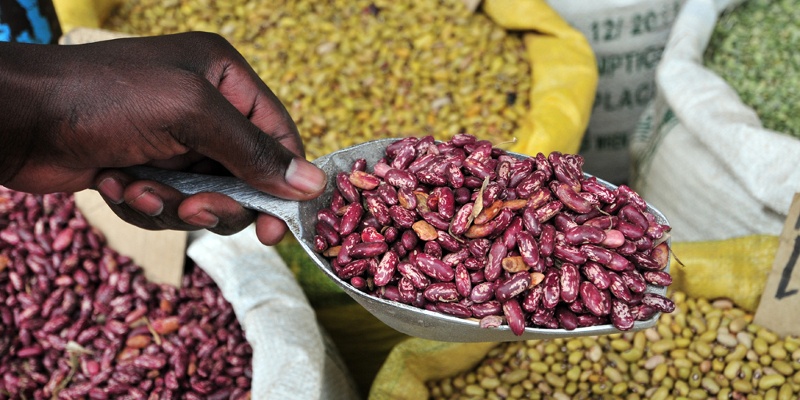
Urgent need to transform key food producing regions in Africa
Agriculture in parts of sub-Saharan Africa must undergo significant transformation if it is to continue to produce key food crops. A new study, published in Nature Climate Change, shows that maize, beans and bananas are most at risk from climate change. The research is the first to allocate timeframes for changes in policy and practice in order to maintain production levels and avoid placing food security and the livelihoods of smallholder farmers at risk. Study lead author Dr Julian Ramirez-Villegas from the University of Leeds, who is working with the CGIAR Research Program on Climate Change, Agriculture and Food Security (CCAFS), said: “This study tells where and, crucially, when interventions need to be made to stop climate change destroying vital food supplies in Africa.
“We know what needs to be done and, for the first time, we now have deadlines for taking action.”

Air quality success, but what about the impact of Brexit?
New research celebrates the success of EU air quality policy, at a time when such policies face an uncertain future because of Britain’s European referendum.
The study, led by the University of Leeds, has found that about 80,000 deaths are prevented each year due to the introduction of European Union (EU) policies and new technologies to reduce air pollution. Published in the journal Environmental Research Letters, it is the first study to look into the effectiveness of specific EU policies to reduce air pollution across Europe. It reveals that the policies have led to a 35% reduction of fine particles in the atmosphere over the period 1970 to 2010, which has improved public health across Europe. The good news, however, comes at a time when such policies face an uncertain future in light of a potential Brexit.

Will driverless cars increase reliance on roads?
Researchers warn that driverless vehicles could intensify car use, reducing or even eliminating promised energy savings and environmental benefits. Development of autonomous driving systems has accelerated rapidly since the unveiling of Google’s driverless car in 2012, and energy efficiency due to improved traffic flow has been touted as one of the technology’s key advantages. However, new research by scientists from the University of Leeds, University of Washington and Oak Ridge National Laboratory, says its actual impact may be complicated by how the technology changes our relationship with our cars. The research, published in the journal Transportation Research Part A, was led by Dr Zia Wadud, Associate Professor in the University of Leeds’ Faculty of Engineering and a research group leader in the University’s Institute for Transport Studies.
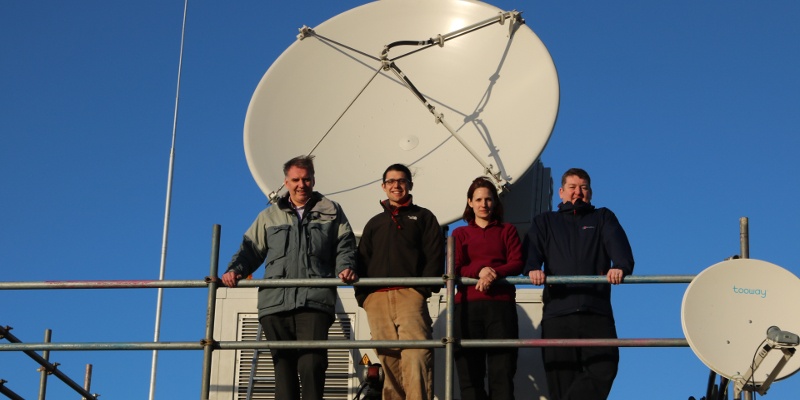
Improving rainfall and flooding predictions
The University of Leeds is a partner in a new research project to improve our understanding of rainfall and flood predictions in Scotland. Scientists from the University will work alongside the Scottish Environment Protection Agency (SEPA), the National Centre for Atmospheric Science (NCAS), Scottish Water and the Met Office. The Radar Applications in Northern Scotland (RAINS) project will involve the deployment of NCAS’ Mobile X-band Radar to Kinloss, Scotland, from January to July 2016, to observe clouds and measure rainfall. The observations from the NCAS radar will be used alongside the existing Met Office radar network to study precipitation and flooding. This will be the first in-depth study of clouds, precipitation and how they link to flooding in Scotland. The NCAS radar is capable of measuring clouds and precipitation in remote locations and is the only one of its kind in the United Kingdom.
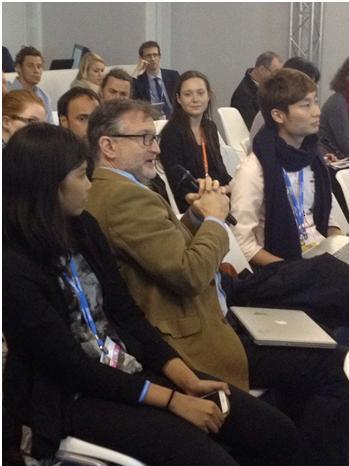
WUN Sustainability Grant for Global Platform
The WUN Sustainability Grant realizes the potential of the Global Farm Platform by facilitating the exchange of ideas and by supporting two international funding bid writing workshops to draft proposals
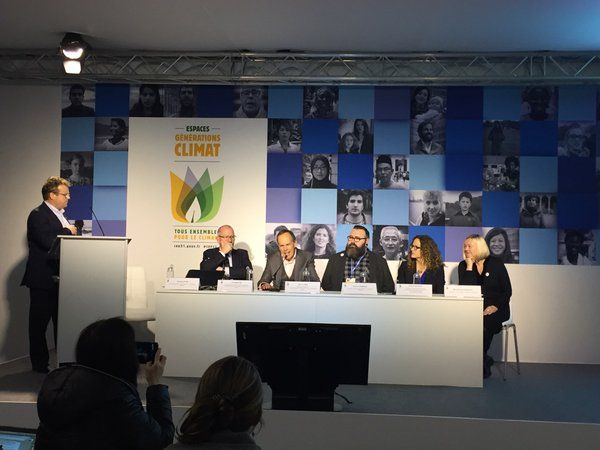
Moving Toward a Sustainable Future Following COP21
After many years of failed attempts, world leaders have finally signed a comprehensive deal to address climate change at COP21 in Paris. WUN was there.
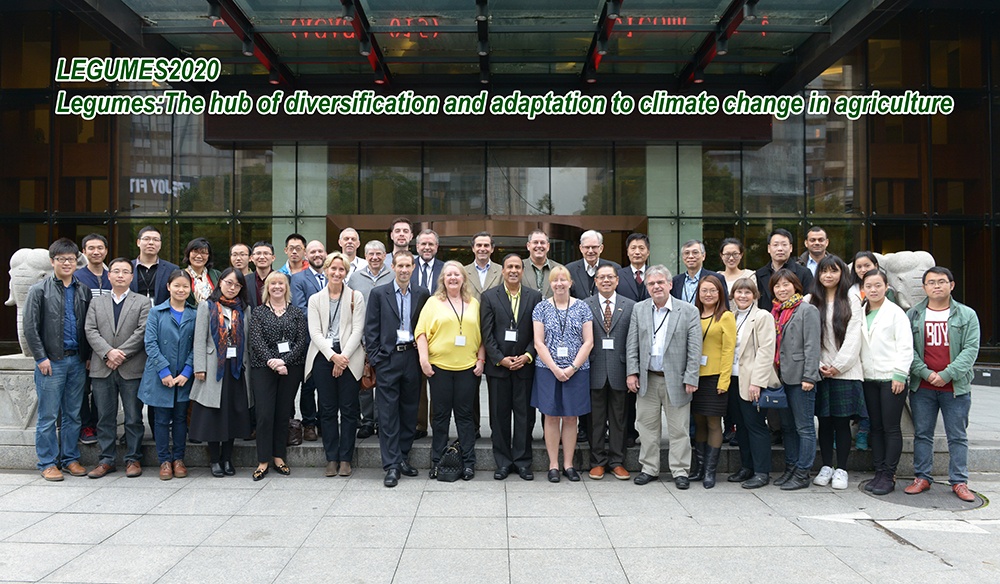
Legumes: the Solution to Human Health and Agricultural Sustainability
As the world’s population continues to grow and the effects of global warming and climate change begin to affect crop yields, new and existing crops must be developed that are resilient to temperature extremes, drought and salinity, while also being cheap to produce. The UN Secretary-General, Ban Ki-Moon, himself, noted the scale of the problem saying “diversification of crops with legumes and other practical measures must be scaled up to end hunger while meeting the challenge of climate change”.

Proactive in Paris: Researchers head to Paris for crucial climate change talks
Scientists and world leaders are convening in Paris to tackle climate change, and the University of Leeds is well represented at the talks, offering a wealth of expertise in climate change science. Students and alumni of the University of Leeds have also created a short documentary film about the path to Paris and why this COP should be different to previous years, which failed to reach an agreement on how to address climate change. The film, called Atmosphere, is directed by postgraduate student Nick Roxburgh from the University’s School of Earth and Environment and is the result of a successful crowd-funding campaign.
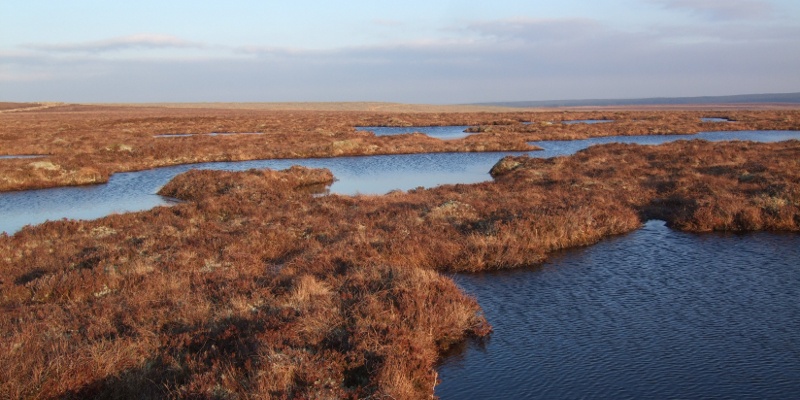
Peatland Code could significantly cut greenhouse gas emissions
A new Government-backed code has been launched that could slash UK carbon dioxide emissions by 220 million tonnes and protect rare wildlife by restoring moors, bogs and mires. The Peatland Code is unveiled at the World Forum for Natural Capital in Edinburgh on 23 November following a successful two-year trial, which has seen businesses fund peatland restoration projects in southwest England, the Lake District and Wales. The Code is based on research by academics at the University of Leeds and Birmingham City University, which revealed that sustainable business investment could reverse the degradation of peatlands and significantly cut greenhouse gas emissions.
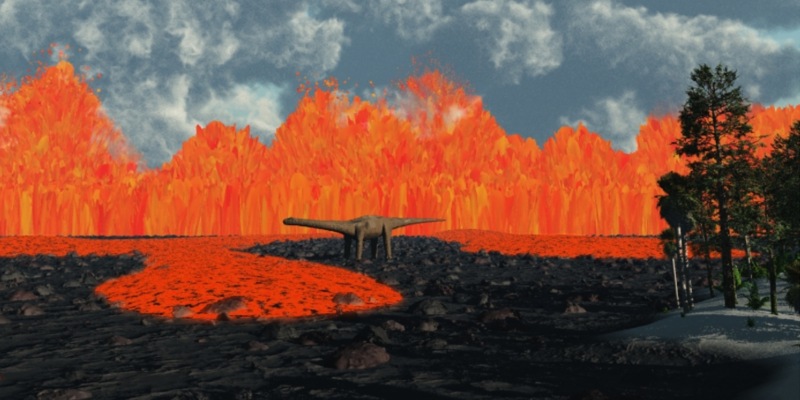
Drawing a ‘curtain of fire’ on dinosaur extinction theory?
Earth’s early history is likely to have been much less severe than previously thought, according to a study led by the University of Leeds. Asteroid impacts and long-lasting volcanic eruptions called continental flood basalts – the two most commonly cited possible causes of mass extinction events – would have propelled gas and dust into the atmosphere and altered climate for years. But, until now, the impact of years of sulphur dioxide emissions from continental flood basalts was unknown. In a study published online on 23 November in Nature Geoscience, researchers have provided for the first time a quantitative estimate of the degree and nature of the effects that such eruptions had on the Earth’s climate, vegetation and oceans.

Half of all Amazonian tree species may be globally threatened
More than half of all tree species in the world’s most diverse forest – the Amazon – may be globally threatened, according to a new study. But the study, published on Friday 20 November, in the journal Science Advances, also suggests that Amazonian parks, reserves and indigenous territories will protect most of the threatened species, if properly managed. The findings were announced by a research team comprising 158 researchers from 21 countries, led by Dr Hans ter Steege of Naturalis Biodiversity Center in the Netherlands and Dr Nigel Pitman of the Field Museum in Chicago, USA. The pan-Amazon RAINFOR network led by the University of Leeds contributed hundreds of forest monitoring plots to the effort

Talking Climate Change – WUN on the world stage at UNFCCC COP21
The world will gather in Paris in early December for the 21st Conference of Parties (COP21) to develop solutions to climate change and WUN will join them as an official observer organisation.
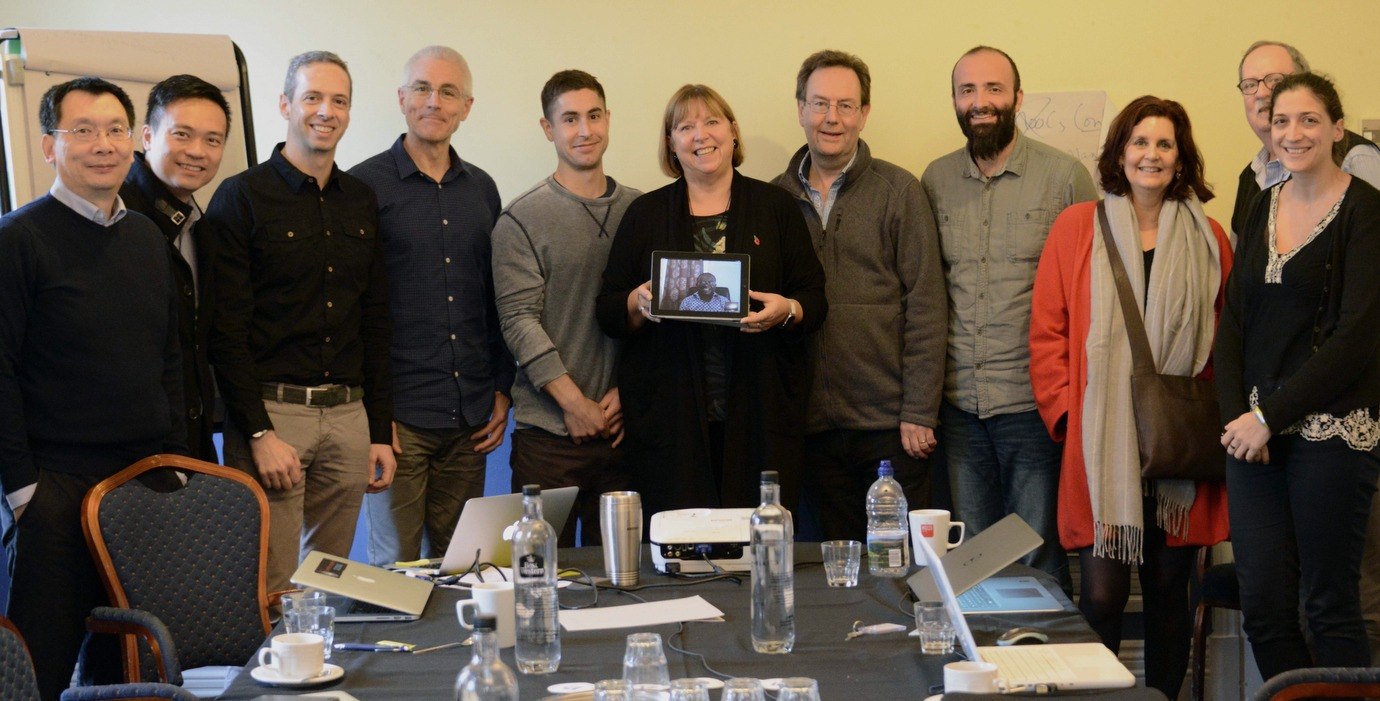
Inaugural Web Observatories Workshop Takes Place in Southampton
Much like the printing press, the invention of the world wide web has afforded us unprecedented opportunities for spreading information. Not only do we now have the capacity to share rich data sets online, we also have vast amounts of data about our online activity. However, without a proper framework in place, it is difficult to take full advantage of this rich information resource. There are currently multiple barriers to using this resource effectively, including accessibility of datasets, lack of comprehensive and shareable metadata, dataset identification and searching, access control and privileges, and analytics.
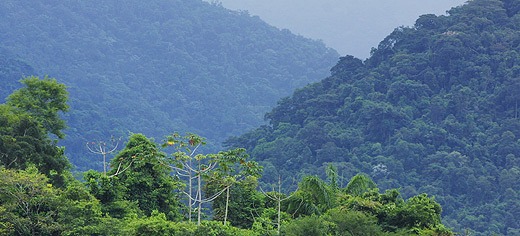
Increased deforestation and the Amazon basin rainfall
Researchers report that continued deforestation of the Amazon rainforest could diminish rainfall levels in the Amazon River basin, which may impact the region’s climate, ecosystems and economies.
A new study, published on Thursday 12 November in Geophysical Research Letters, predicts that by the middle of the century annual rainfall in the Amazon could be less than the yearly amount of rain the region receives during drought years if deforestation rates revert back to pre-2004 levels.
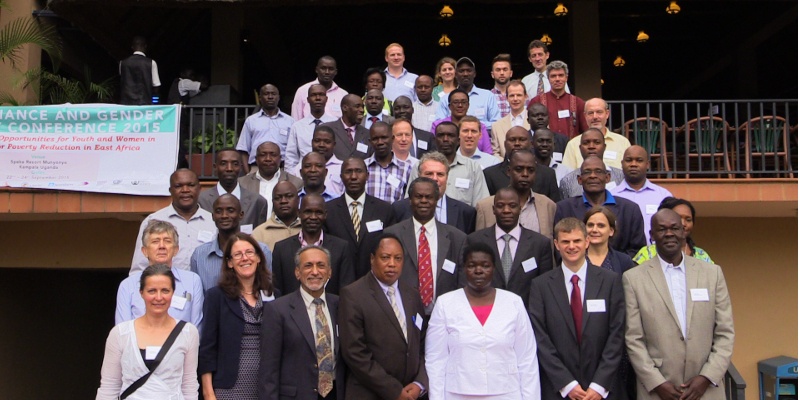
New £20 million research programme to deepen understanding of Africa’s changing climate
A UK government-funded initiative will put £20 million behind research to better understand Africa’s changing climate and the use of climate change information in decision-making across the continent. Future Climate for Africa (FCFA) is supporting five major research projects to develop better climate information for Africa and to test how the new information could be used in decision-making. Dr John Marsham from the University of Leeds is leading the HyCRISTAL project, which addresses East Africa, while fellow researchers from the University’s School of Earth and Environment are taking key roles in the projects addressing West Africa (AMMA2050), southern Africa (UMFULA) and modelling African climate (IMPALA). FCFA is a joint programme of the UK’s Department for International Development (DFID) and Natural Environment Research Council.

Climate research a highlight in new NERC funding
The University of Leeds has been awarded £3 million by the Natural Environment Research Council (NERC) to shed light on why the climate is warming at an uneven rate with pronounced pauses and surges. The project, which will be led by Professor Piers Forster from the School of Earth and Environment, is funded via NERC’s new ‘highlight topics’ – one of the research council’s new ways of funding strategic research.

CUHK Researcher Recognized by WMO for Global Food Security Study
Prof. Amos P.K. Tai of the Earth System Science Programme at The Chinese University of Hong Kong (CUHK) was recently conferred the World Meteorological Organisation (WMO) Research Award for Young Scientists for 2015. The award was presented to Prof.Tai for his paper in Nature Climate Change, Volume 4, 2014, titled “Threat to future global food security from climate change and ozone air pollution”. Prof. Tai is the first Hong Kong scientist receiving the Award.
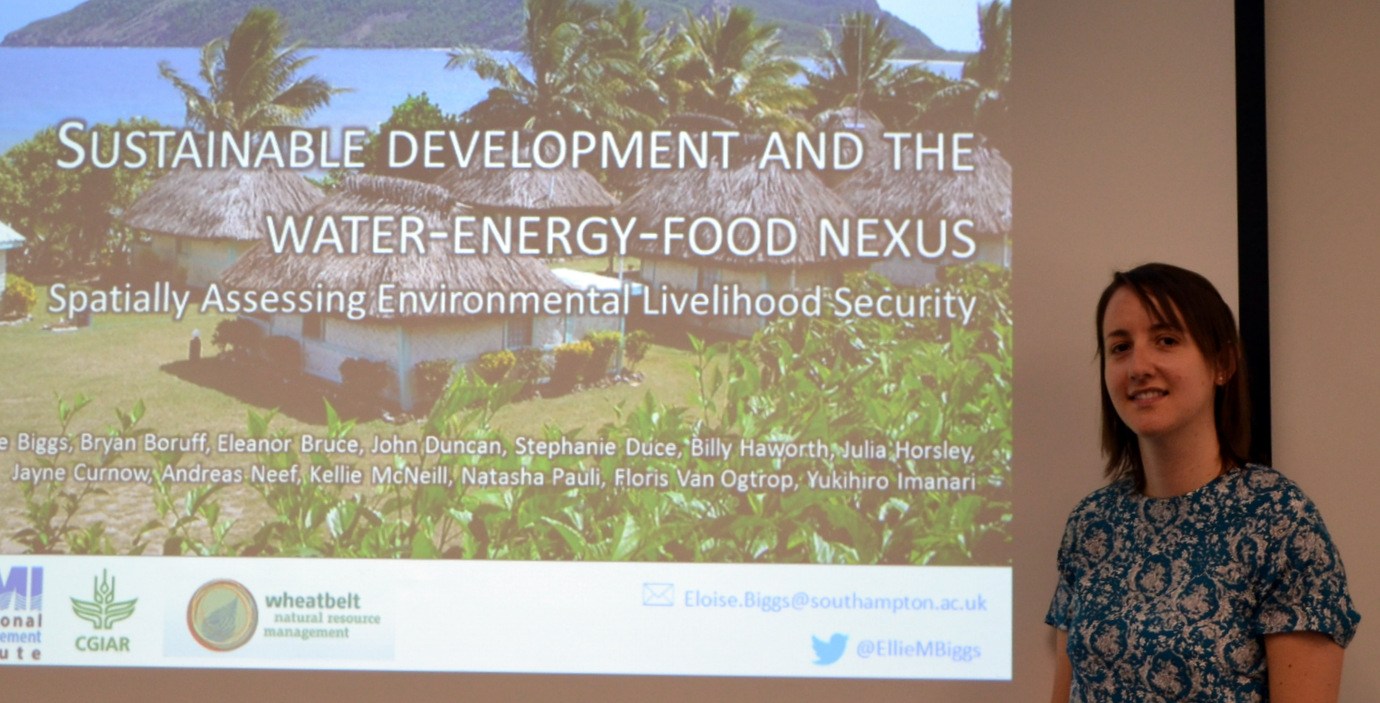
Ensuring Environmental Livelihood Security
In communities where livelihoods are linked to the land and sea, environmental security is of utmost importance. This is particularly true in the developing nations of the Asia-Pacific, where many localities have a high dependency on fisheries, tourism and agriculture. Moreover, global changes are increasingly resulting in challenging localised impacts, such as increased frequency of extreme events. Thus, understanding the social-environment system is imperative to providing solutions for responding to climate change.
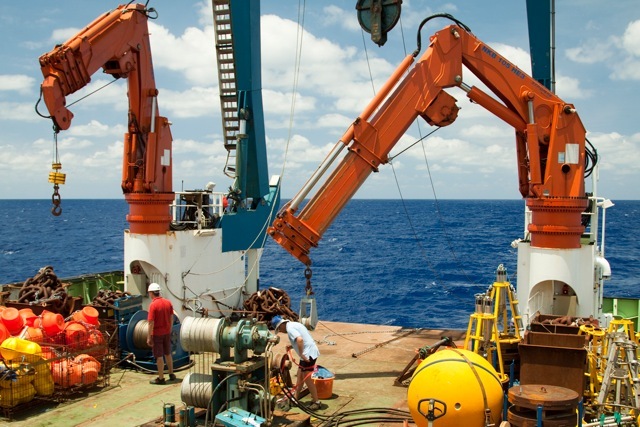
Global climate on verge of multi-decadal change
A new study, by scientists from the University of Southampton and National Oceanography Centre (NOC), implies that the global climate is on the verge of broad-scale change that could last for a number of decades.
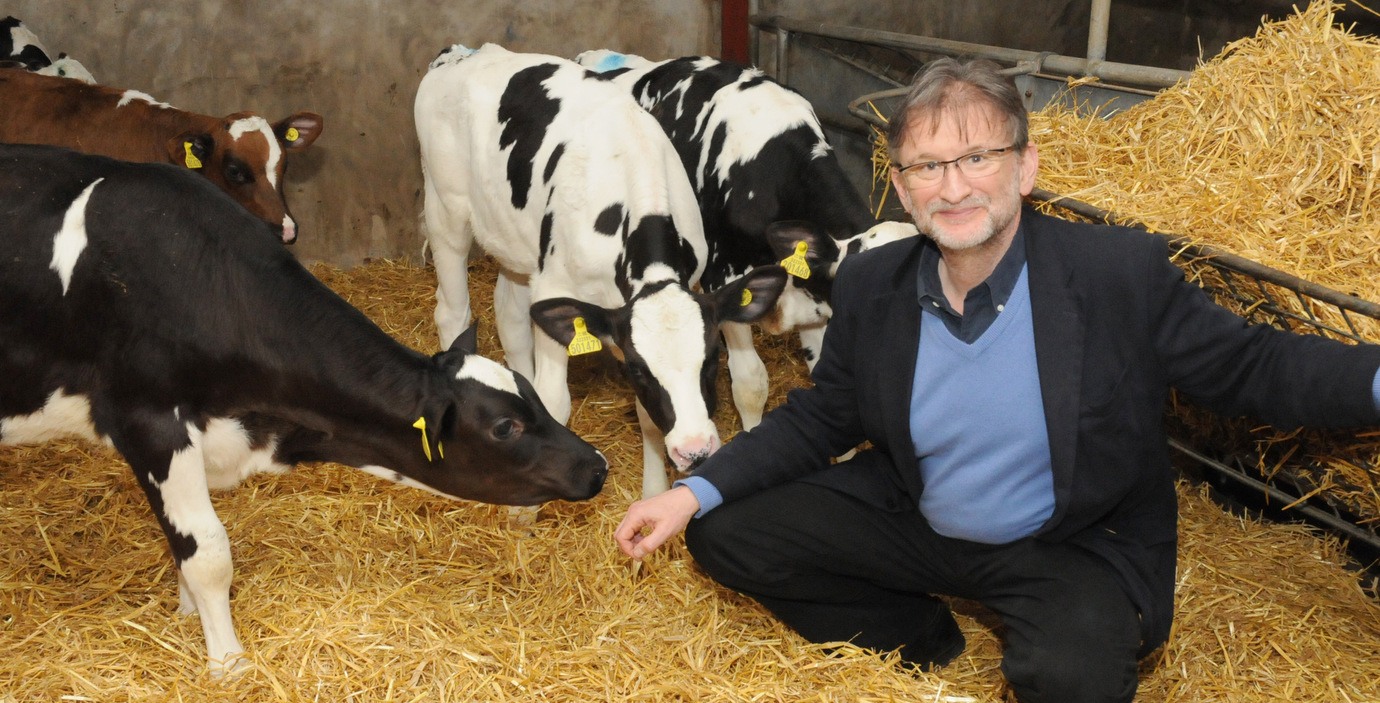
Steps to sustainable livestock
Global food security has become an increasingly important issue as climate change further reduces the amount of land available for farming. Coupled to this is the higher demand for animal protein as developing nations become wealthier, and a higher demand for cereals, making them less attractive as animal feed at both an economic and social level. This has resulted on a greater emphasis on ruminant farming (e.g. cattle and goats) because these animals are capable of converting feed unsuitable for human consumption into high-value protein.

The tides they are a changin’
Scientists from the University of Southampton have found that ocean tides have changed significantly over the last century at many coastal locations around the world.

Evidence from warm past confirms recent IPCC estimates of climate sensitivity
New evidence showing the level of atmospheric CO2 millions of years ago supports recent climate change predications from the Intergovernmental Panel on Climate Change (IPCC).
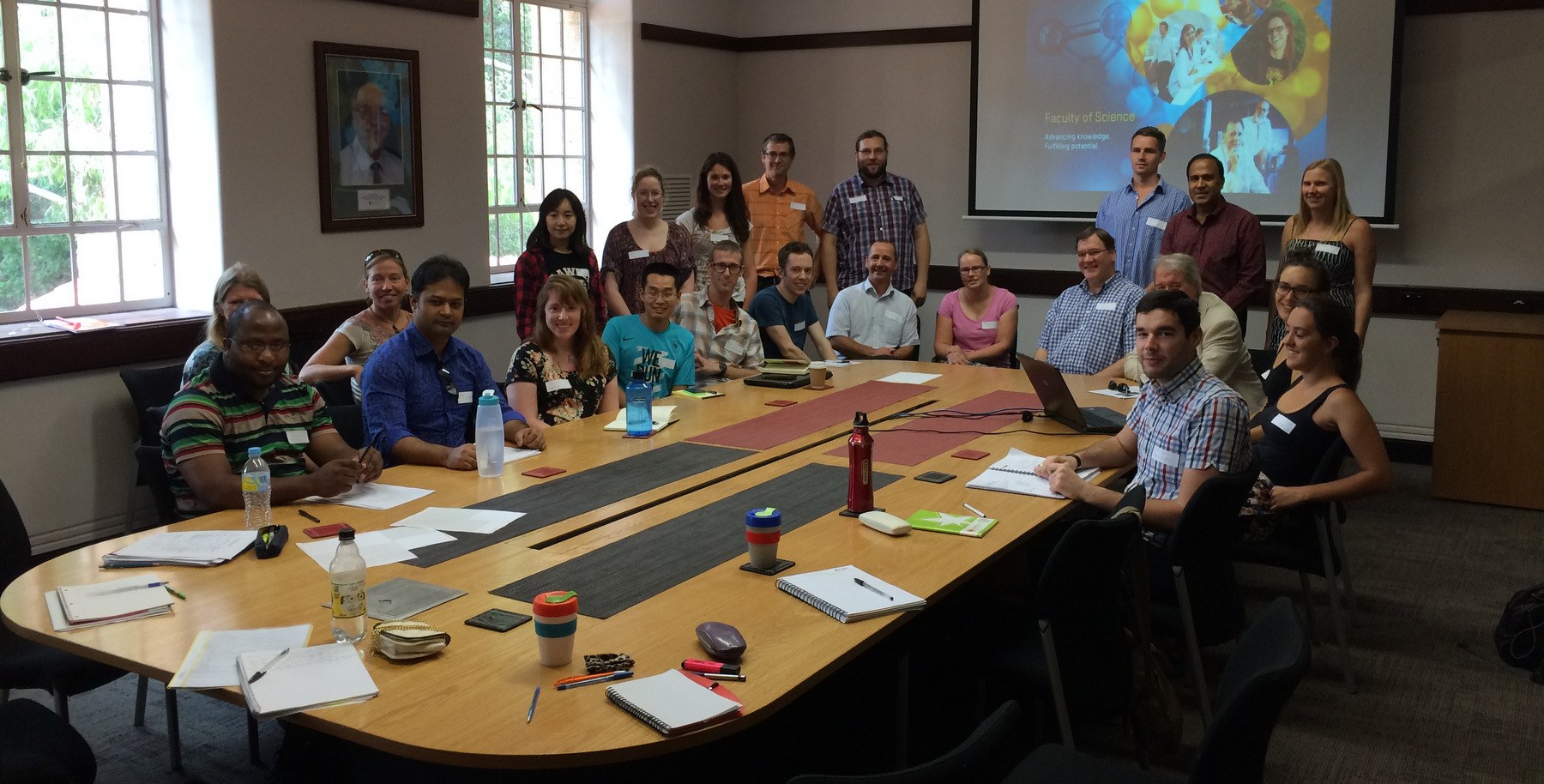
Inaugural WUN Summer School opens in Perth
Students from around the Worldwide Universities Network (WUN) gathered in Perth on Friday for the start of the Inaugural WUN Summer School at the University of Western Australia. The 20 students, representing seven countries and nine WUN universities, will spend the next two weeks sharing their global perspectives on responses to climate change.

Bergen and UMass Amherst Study Climate Dynamics in Greenland
Students and researchers from Europe and North America moved the lecture hall to Greenland to learn more about climate dynamics.

Improving global water services
One of the world’s most vital resources—water—is increasingly at the centre of debate. Its scarcity has intensified the movement toward water as a human right, yet private control over water utilities is simultaneously increasing. Although this tension is only just emerging, experts believe it will rapidly intensify as more investors seek access to fresh water in new countries.

University of Southampton awarded £1M to address global marine and maritime challenges
The Southampton Marine and Maritime Institute (SMMI) at the University of Southampton has been awarded over one million pounds to develop students who will help tackle global marine and maritime challenges.

New study explains the role of oceans in global ‘warming hiatus’
New research shows that ocean heat uptake across three oceans is the likely cause of the ‘warming hiatus’ – the current decade-long slowdown in global surface warming.

Research confirms how global warming links to carbon emissions
A team of researchers from the universities of Southampton, Bristol and Liverpool have derived the first theoretical equation to demonstrate that global warming is a direct result of the build-up of carbon emissions since the late 1800s when man-made carbon emissions began. The results are in accord with previous data from climate models.

Ancient marine algae provides clues of climate change impact on today’s microscopic ocean organisms
A study of ancient marine algae, led by the University of Southampton, has found that climate change affected their growth and skeleton structure, which has potential significance for today’s equivalent microscopic organisms that play an important role in the world’s oceans.

ACDC visits Greenland
The Advanced Climate Dynamics Courses (ACDC) are yearly international research training schools for PhD students organized by the Bjerknes Centre for Climate Research in Bergen in collaboration with the Norwegian Research School in Climate Dynamics (ResClim).

Past climate change and continental ice melt linked to varying CO2 levels
Scientists at the Universities of Southampton and Cardiff have discovered that a globally warm period in Earth’s geological past featured highly variable levels of CO2.
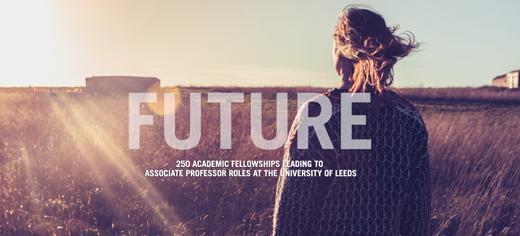
Leeds embarks on biggest ever academic recruitment drive
The University of Leeds is offering 250 new opportunities for academic researchers in its biggest ever recruitment drive. A £100m investment, “250 great minds” (250greatminds.leeds.ac.uk), launched on Wednesday 1 October and will recruit 250 early career academic fellows over the next three years.

Third of countries struggling to meet the needs of ageing population
People around the world are living longer, but social policies to support their wellbeing in later life are lagging behind in many countries. This is according a new report by HelpAge International, developed in partnership with the University of Southampton.

Scientists take part in first ever probe on seabed CO2 stores
Scientists from the University of Southampton and National Oceanography Centre, Southampton contributed to the world’s first ever sub-sea carbon dioxide impact, detection and monitoring experiment relevant to Carbon dioxide Capture and Storage (CCS) in sub-seabed storage reservoirs.

Scientists develop tool to help communities stay environmentally and socially ‘healthy’
Geographers at the University of Southampton have developed a new way to measure the ‘health’ of poor regional communities. They aim to improve the wellbeing of people by guiding sustainable development practices to help avoid social and environmental collapse.

Study tracks global sea levels over the last five ice ages
Land-ice decay at the end of the last five ice-ages caused global sea-levels to rise at rates of up to 5.5 metres per century, according to a new study.

Increase in reported flooding a result of higher exposure
A rise in the number of reported floods in the UK over the past 129 years can be related to increased exposure, resulting from urban expansion and population growth, according to new research by the University of Southampton.

Study finds Europe’s habitat and wildlife is vulnerable to climate change
New research has identified areas of the Earth that are high priorities for conservation in the face of climate change.

Rising temperatures hinder Indian wheat production
Geographers at the University of Southampton have found a link between increasing average temperatures in India and a reduction in wheat production.

Researchers develop a Wikipedia of fact-checking during natural disasters
ew web application for gathering evidence during natural disasters, which will enable more effective emergency response. Accurate information can be life-saving in extreme situations, such as earthquakes and tsunamis. However,

Map reveals worldwide impacts of climate change
Scientists from the University of Southampton have helped to create a new map, which shows the impact climate change could have on the whole planet by the end of the century, if carbon emissions continue to increase.
